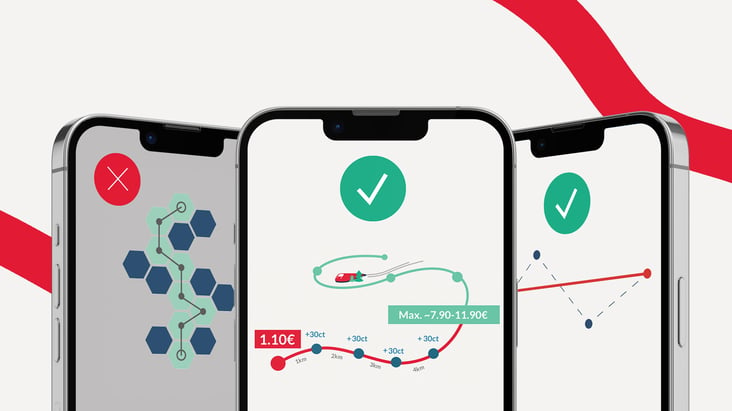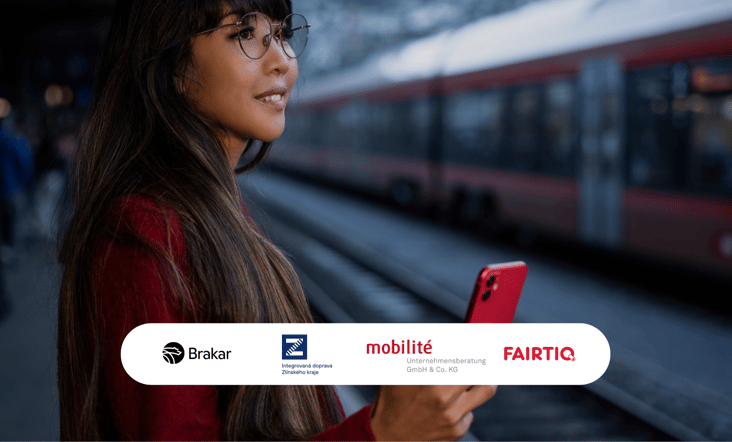
The writing is on the wall
Passes or travel cards were invented to reward volume riders and facilitate budgeting for customers, operators and agencies. Many transport systems had already experienced the erosion of pass sales in recent years and the pandemic made it even worse. As flexible work patterns live on past the pandemic, more customers, operators and agencies will look for alternatives to passes.
Why prepay at all?
Over the years, it has become evident that prepayment can be problematic for low income customers. In general, while prepayment has almost disappeared from daily life, it remains the rule in the transport world. Even if monthly or weekly passes disappear, single tickets with a 60, 90 or 120-minute duration remain forms of passes - just short ones.
In developing their fare options, a choice can be made between a small number of products that may not meet all needs, and a wide array of products that meet all needs but risk confusing customers. It is not uncommon for infrequent users to state that they do not take public transport because they don’t know how much it costs or how to pay.
Transport is a utility - utilities send invoices
What if transport could be a postpaid experience like a utility? Utility customers have accounts and pay for what they use. They are not asked to figure out in advance how much power or gas they will use, only to lose it if the sun shines.
Wouldn’t it be better not to worry about zones, period passes and pre-loading, or trying to figure out how many days you will travel, only to find yourself penalised for staying home to take care of kids or recover from illness?
What if customers could just get on board and let a system figure out and charge the best price from the available ticket products based on travel behaviour, guaranteeing the best price?
Two developments have got us closer:
- A farecard with tap-on/tap-off. Customers are charged at the end of their trip, but failure to tap off triggers a fine, however, a card has to be obtained and pre-loaded with an amount to cover all your possible transport plans.
- EMV-based systems resolved the issue of securing a card and loading it but tap-off is still needed. The risk of a penalty still exists, and it discourages the implementation of distance-based fares. All card systems require millions in investments for a central system and readers that need to be purchased, operated,maintained, kept up to date and cleaned.
Unlike cards, smartphones know where they are
Smartphones know their location and can track a trip from start to finish. This means that a trip can be priced based on its route, origin and destination, and time of day. Distance-based fares, off-peak fares, capping and usage bonuses are now easy to implement. And because a smartphone is personal, the user can receive vouchers and special discounts.
Postpaid with FAIRTIQ
FAIRTIQ provides a postpaid experience that takes the customers’ interest to heart and earns their trust. They check in and receive an open travel permit. At the end of the day, they get the best price based on exact usage behaviour.
Public Transport paradise, fare jungle
FAIRTIQ was born in Switzerland, a transport paradise criss-crossed by services of unimaginable variety including not just trains, buses and trams but also cable cars, funiculars, 100+ year-old steamboats. The density of services and overlapping networks and fare associations means that often a local, regional and national rate applies, as do single tickets and a multitude of period passes. FAIRTIQ gained experienced explosive growth thanks to a simple promise: just check in. We’ll rummage through all these fares and give you the best one.
Trust us.
Public transport companies should not be banks
Even without passes, conventional farecard systems take customers’ hard-earned money and keep it until they offer a service. With a postpaid experience, no preloading is needed. This means:
- No worries about how much to load and tied up funds
- No customer care issues about loading
- No issues related to lost cards or transferring funds from account to account
The future of transport is postpaid
The time is now to benefit from the latest technology to offer postpaid products that make the customer experience less stressful - no advance decisions - and more forgiving - customers can change their plans without penalty over the week or month if they become sick or decide to work from home.
What if they dine and dash?
We are often asked - “what if they don’t pay”? It’s true that postpaid can be seen as risky - customers enjoy the service and pay later. FAIRTIQ performs a number of checks when the customer checks in, including that the recorded mode of payment is valid. The mode of payment is recorded and can be charged even if the customer tries to remove it or cancel their account before they are charged. FAIRTIQ’s collection rate exceeds 99% and is trusted by SBB, the Swiss National Railway, to process journeys on the national network.




.png?width=732&name=image%20(2).png)


Share